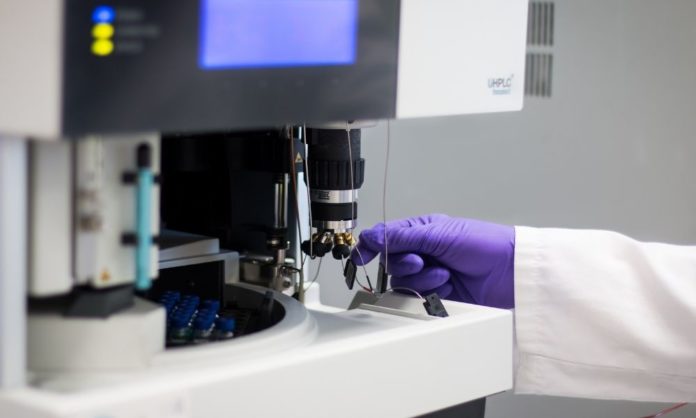If you’re an applied science major, you should be familiar with the popular separation technique known as chromatography. Chromatography is vital in various scientific industries, from pharmaceutical analysis to environmental testing. Some of the most common types of chromatography include gas chromatography (GC), liquid chromatography (LC), and high-performance liquid chromatography (HPLC).
If both HPLC and liquid chromatography use liquid separation, you may be wondering why HPLC is called high performance. Let’s dive into the differences between the two methods.
Liquid Chromatography
Liquid chromatography is a separation process that isolates the individual components of a mixture by using a liquid solvent. This process involves a transfer of a sample through a polar mobile phase and non-polar stationary phase. Traditionally, liquid chromatography relies on the force of gravity to push the mobile phase through the analytical column. This step is where liquid chromatography and HPLC differ from one another.
High Performance Liquid Chromatography
HPLC is an advanced form of liquid chromatography. Instead of relying on the force of gravity to move the solvent, an HPLC pump increases the pressure in the column. Using a pump significantly reduces separation time compared to using traditional liquid chromatography. However, this means that HPLC also requires a bit more work. You must use a few more consumables, and you have to monitor the excess pressure within the column.
HPLC also provides much better separation. HPLC allows for much smaller particles for column packing materials. This means there is a greater surface area for the stationary phase and the components flowing past it, creating better separation. Better separation means better results and easier analysis, making HPLC a highly recommended separation technique.
All applied science majors should understand why HPLC is called high performance. The use of a high-pressure pump separates HPLC from traditional liquid chromatography and often results in a quicker separation time and better separation overall.








